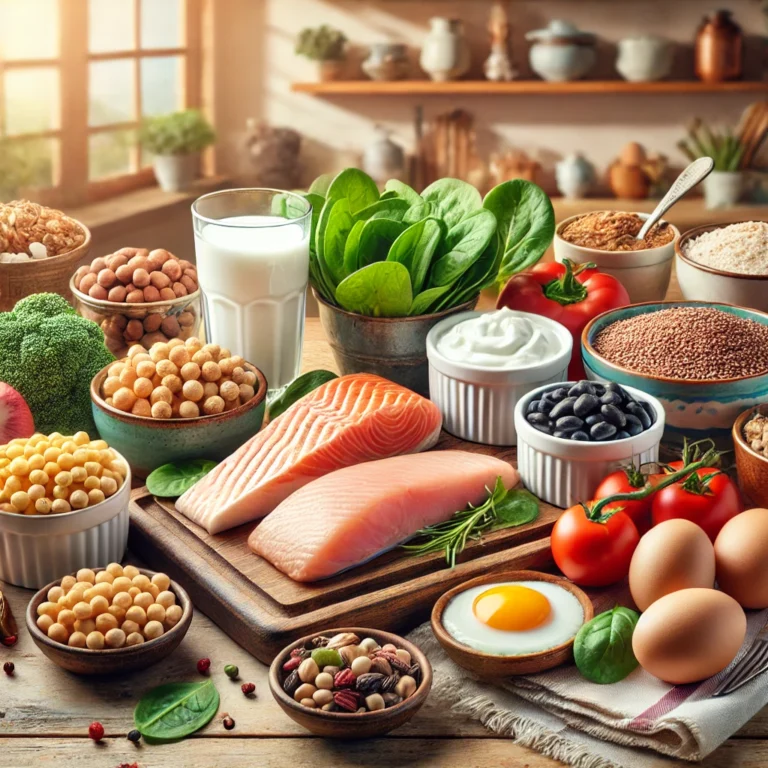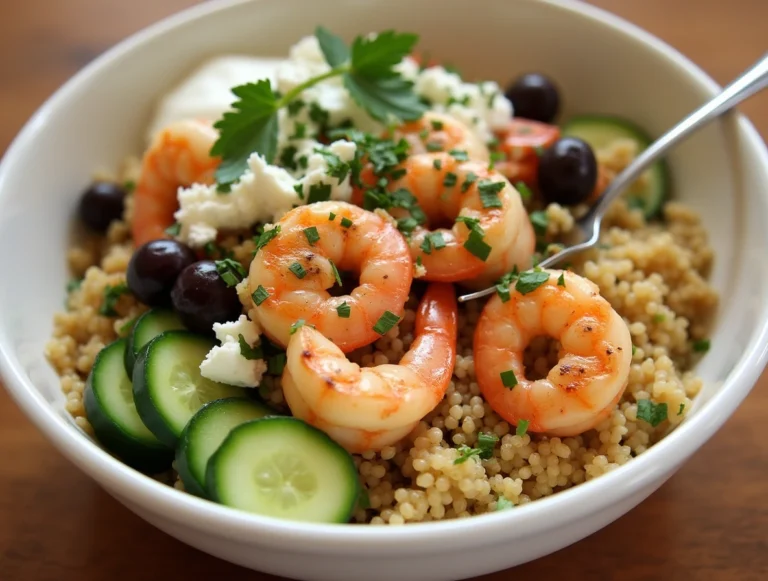Eating Right and Gain The Incredible Brain-Boosting Benefits

Table of Contents
Did you know that one in ten Americans aged 45 and older are experiencing subjective cognitive decline? This is a shocking fact. It shows how important it is to understand how food affects our brains and thinking skills.
Eating Right and brain health are closely linked. Studies show that what we eat can greatly affect our brain’s function. The foods we choose are key to keeping our minds sharp, preventing memory loss, and supporting brain health.
Recent studies show that our diet over time can impact how well our brain works. Eating poorly isn’t just bad for our bodies—it also hurts our brains. Every meal we eat affects areas like the prefrontal cortex and hippocampus.
By 2030, experts think 12.7 million people aged 65 and older might have Alzheimer’s dementia. This makes it clear how vital it is to understand the link between what we eat and our brain health.
Key Takeaways
- Diet directly impacts cognitive function and brain health
- Eating Right plays a crucial role in preventing cognitive decline
- Food choices can influence memory and mental performance
- Long-term dietary patterns affect brain aging
- Proactive nutrition can help protect against neurodegenerative diseases
Understanding the Philosophy of Eating Right
The link between what we eat and our brain’s function is truly amazing. It shows how food affects our brain health in complex ways. Our brain, weighing about 3 lbs, uses a lot of glucose and is mostly fat.
Eating the right foods is more than just fueling our bodies. It’s about getting the nutrients our brain needs for thinking, feeling, and working well.
How Brain Chemistry Responds to Nutrients
Our brain’s chemistry changes with what we eat. Different foods trigger different chemical reactions. These can:
- Influence neurotransmitter production
- Support neural plasticity
- Regulate mood and cognitive function
- Protect against inflammation
The Role of Neurotransmitters in Food Processing
Neurotransmitters help brain cells talk to each other. Certain nutrients directly impact their production and effectiveness. For example:
- Proteins help produce dopamine and serotonin
- Complex carbohydrates support steady energy release
- Omega-3 fatty acids enhance neural communication
Impact on Neural Pathways
What we eat can change our brain’s pathways. Eating foods rich in B vitamins, magnesium, and omega-3 fatty acids can help. It might improve memory and reduce stress.
“Your brain is what you eat” – Nutrition Researchers
Knowing how food affects outraising helps us make better choices and supports our brain’s health and well-being.
Essential Nutrients That Power Your Brain
Knowing what nutrients feed your brain is key to top mental performance. The brain is a complex organ that needs specific nutrients to work well. It’s not just about what you eat; it’s about fueling your brain for peak performance.
- Omega-3 Fatty Acids: Critical for brain cell structure
- Antioxidants: Protect against cellular damage
- B-Vitamins: Support neurotransmitter production
- Minerals like Zinc and Magnesium: Enhance cognitive function
“Your brain is what you eat – choose nutrients that nourish and protect.”
Now, let’s dive into the most important brain-feeding nutrients:
| Nutrient | Brain Benefits | Top Food Sources |
|---|---|---|
| Omega-3 Fatty Acids | Builds brain and nerve cells, supports memory | Salmon, Walnuts, Chia Seeds |
| Vitamin E | Protects against free radical damage | Almonds, Sunflower Seeds |
| Zinc | Supports memory and neurotransmitter regulation | Pumpkin Seeds, Oysters |
| Magnesium | Enhances learning and brain plasticity | Dark Chocolate, Spinach |
Nutrition for mental performance is not about a single miracle food, but a balanced approach to brain health. Adding these key nutrients to your diet helps your brain function better. It also protects against aging and boosts your brain’s full potential.
How the Food You Eat Affects Your Brain
Your diet is key to how well your brain works. It affects everything from how clear your mind is to your brain’s health over time.
The food you eat plays a crucial role in shaping your brain’s health and function. Your brain requires a constant supply of energy, which it gets from the nutrients in your diet. Foods rich in antioxidants, healthy fats, vitamins, and minerals—like those found in fruits, vegetables, nuts, fish, and whole grains—help protect brain cells from damage, reduce inflammation, and support the production of important brain chemicals like serotonin and dopamine.
These chemicals influence mood, memory, and focus. Conversely, a diet high in refined sugars and unhealthy fats can lead to inflammation, impair brain function, and even increase the risk of mental health conditions like depression and anxiety.
In simple terms, eating nourishing foods is like giving your brain premium fuel, while poor dietary choices act like sludge, slowing down its performance. So, making mindful choices at mealtime can directly impact how well you think, feel, and learn every day.
To understand how food impacts your brain, we must look at many angles. Eating right affects brain function through complex chemical reactions. These reactions can have both quick and lasting effects.
Immediate Cognitive Function Impacts
What you eat right away affects your mind. Studies show how different foods make your brain react:
- High-fat and high-sugar foods activate the brain’s reward system
- Calorie intake patterns significantly influence neurochemical processes
- Snacking can alter serotonin regulation in the hypothalamus
Long-Term Brain Health Considerations
Long-term eating habits have big effects on your brain. What you eat regularly can either help or harm your brain over time.
“Your brain is what you eat – quite literally.” – Nutritional Neuroscience Expert
| Dietary Pattern | Brain Health Impact |
|---|---|
| Mediterranean Diet | 30% Lower Dementia Risk |
| Western Diet | Increased Cognitive Decline Risk |
| Omega-3 Rich Diet | 15-20% Memory Improvement |
The Gut-Brain Axis Connection
New studies show a strong link between gut health and brain function. The gut microbiome directly communicates with brain networks. This affects mood, memory, and mental sharpness.
People with obesity face unique brain challenges. They have trouble detecting nutrients and their brains work differently. This can make it hard to break metabolic cycles.
Omega-3 Fatty Acids: The Brain’s Best Friend
Omega-3 fatty acids are key for brain health. They are important for mental performance. These nutrients help the brain from the start to later in life.
“Your brain is your body’s most important organ, and omega-3s are its best nutritional ally.”
There are different types of omega-3s, each with its benefits:
- EPA (Eicosapentaenoic acid): Reduces brain inflammation
- DHA (Docosahexaenoic acid): Supports neural structure
- ALA (Alpha-linolenic acid): Provides overall brain protection
Studies show omega-3s are linked to brain health. Not getting enough omega-3s can increase the risk of memory loss and Alzheimer’s by nearly 30%. Experts say eating at least 8 ounces of fatty fish a week is good for the brain.
Here are some top foods rich in omega-3s:
- Cold-water fish (salmon, sardines)
- Nuts and seeds
- Plant-based oils
- Fortified foods
If it’s hard to get enough omega-3s from food, supplements can help. But, always talk to a doctor to find out what’s best for you.
The Impact of Antioxidants on Cognitive Function
Eating right and brain health are closely linked, with antioxidants playing a key role. These compounds protect cells from damage. They help keep our brains working well as we age.
Free radicals are harmful to our brain health. They can cause oxidative stress. This stress can lead to faster brain decline and higher risks of neurodegenerative diseases.
Free Radical Protection Strategies
Eating foods rich in antioxidants can greatly improve brain health. Here are some effective strategies:
- Eat colorful fruits and vegetables
- Add berries to your diet for their anthocyanins
- Choose foods high in vitamins C and E
- Include nuts and seeds in your meals
Preventing Age-Related Cognitive Decline
Studies show antioxidants have great benefits for the brain. A study by Wengreen et al. found that those with more vitamin intake kept their brains sharp for 7.2 years.
“Higher levels of total antioxidant capacity were associated with a lower risk of impaired cognitive function among healthy older adults.” – Peng et al. Research
Memory Enhancement Properties
Some antioxidants are especially good for memory. Blueberries, for example, have anthocyanins. These fight inflammation and protect brain pathways.
Here are some memory-boosting antioxidants:
- Vitamin E
- Flavonoids
- Polyphenols
- L-ergothioneine
Eating foods rich in antioxidants can help slow down brain aging. It supports brain health for years to come.
Brain-Boosting Superfoods and Their Benefits

Discovering the right brain-boosting foods can change how your brain works. Some superfoods are amazing for improving brain health and mental clarity.
Let’s look at the top foods that boost your brain:
- Fatty Fish: Salmon and sardines have omega-3s that help brain cells grow and fight inflammation
- Blueberries: They’re full of antioxidants that protect brain cells and boost memory
- Nuts and Seeds: They give you vitamins and healthy fats that are good for your brain
- Leafy Greens: They have folate and vitamins that keep your brain healthy and slow down aging
“Your brain is what you eat – choose foods that nourish your neural pathways.”
Studies show eating these foods can make your brain work better. Omega-3s, for example, should be eaten at least twice a week for a healthy brain.
Food and brain function are closely linked. Foods rich in antioxidants, like berries, protect brain cells. Whole grains give you energy for better focus and concentration.
Planning your meals can help you eat these superfoods every day. This supports your brain health and mental sharpness over time.
The Role of Vitamins and Minerals in Brain Health
Nutrition is key to keeping our brains working well. Foods that feed our brains are vital for thinking clearly and feeling good. Knowing which vitamins and minerals help our brain can guide us to better food choices.
Eating right for our minds involves many important nutrients. These nutrients help our brain work and stay healthy.
Essential B-Vitamins for Brain Function
B vitamins are super important for our brain health. Here are some B vitamins that help our brain work well:
- Vitamin B6: Crucial for neurotransmitter production
- Vitamin B9 (Folate): Supports neural development
- Vitamin B12: Vital for maintaining nerve health
Mineral Requirements for Cognitive Performance
Minerals are also key for brain health and clear thinking.
| Mineral | Brain Health Benefits | Food Sources |
|---|---|---|
| Magnesium | Supports mental health and neural function | Spinach, nuts, seeds |
| Zinc | Essential for cognitive function | Legumes, meat, seafood |
| Iron | Protects the brain from oxidative stress | Red meat, beans, fortified cereals |
| Selenium | Protects brain from oxidative stress | Brazil nuts, fish, eggs |
“Nutrition is the foundation of brain health, providing the essential building blocks for optimal cognitive function.” – Neuroscience Research Institute
Eating foods rich in these brain-feeding nutrients can boost our mental performance. It also helps protect our brain health for the long term.
How Diet Influences Memory and Learning
Diet affects brain health, impacting memory and learning. Research shows how food choices influence our minds. It’s clear that what we eat matters for our mental function.
The brain needs certain nutrients to work well. A study from the UK Biobank with 181,990 participants offers insights. It shows how diet affects brain health.
“Your brain is what you eat” – Nutrition Researchers
- Balanced diets improve mental clarity.
- Complex carbohydrates enhance short-term memory.
- Specific nutrients support learning capabilities
Our diet plays a big role in memory and learning. The study found four main dietary types:
| Dietary Subtype | Cognitive Impact |
|---|---|
| Balanced Diet | Best cognitive performance |
| Vegetarian | Higher gray matter in specific brain regions |
| High Protein/Low Fiber | Lower cognitive functions |
Experts suggest eating foods high in omega-3 fatty acids. These are key for brain flexibility. Foods like fish, veggies, and fruits can boost learning and thinking skills.
Here are tips to improve memory through diet: 1. Eat more complex carbs 2. Add omega-3 foods to your diet 3. Keep your diet balanced 4. Cut down on high-glycemic foods
Knowing how eating right affects our brains helps us make better food choices. This supports brain health and learning abilities.
Nutrition’s Role in Mental Clarity and Focus
Eating right and brain function are closely linked. What we eat greatly affects our mental sharpness. Knowing how food impacts our brain can help us eat better for better focus.

The link between food and brain function is deeper than many think. Our brain needs certain nutrients to work well. Eating right can greatly improve our mental clarity.
Foods That Enhance Concentration
Some foods are proven to improve brain function and focus. Here are the top ones:
- Fatty fish rich in omega-3s
- Blueberries and other antioxidant-packed berries
- Dark chocolate with high cocoa content
- Nuts and seeds
- Leafy green vegetables
Dietary Patterns for Peak Mental Performance
For top mental performance, we need to eat right. Studies show certain foods are best for our brain:
| Nutrient Category | Recommended Daily Intake | Cognitive Benefits |
|---|---|---|
| Carbohydrates | 50% of daily intake | Sustained energy and brain function |
| Protein | 15-20% of daily intake | Supports neurotransmitter production |
| Healthy Fats | 65 grams | Reduces depression risk |
*”Your brain is what you eat – choose wisely.”*
Eating right for brain health means being mindful of what we eat. Drinking plenty of water, eating foods rich in nutrients, and avoiding junk can help our focus.
The Connection Between Eating Right and Mood
Our diet has a big impact on our mood. It’s a key factor in our emotional health. Eating right can greatly improve our mental state.
Studies show how diet affects our mood. Up to 95% of serotonin, which makes us happy, is made in the gut. This shows how closely what we eat is linked to how we feel.
“Your diet is not just fuel for your body, but a blueprint for your emotional state.”
Here are some important foods for brain health:
- Plant-based diets rich in fruits, vegetables, and nuts
- Foods high in omega-3 fatty acids
- Complex carbohydrates for stable blood sugar
- Nutrient-dense whole foods
Experts say eating a balanced diet is key for mental health. Eating 80-85% whole foods can help with mood and emotional strength. But, foods like processed snacks and sugar can harm our mood.
The Mediterranean diet is great for brain health. It’s full of fruits, veggies, healthy fats, and seafood. This diet has been shown to boost mental well-being.
Knowing how diet affects our brain helps us make better food choices. It’s not just about physical health. It’s also about feeling emotionally balanced and mentally clear.
Preventing Cognitive Decline Through Eating Right
Keeping our brains healthy through what we eat is key to staying sharp as we get older. Our diet and brain health are closely linked. What we eat greatly affects our mental well-being over time.
Studies have shown how important our diet is for our brains. A major study followed people for over 75 years. It found a strong link between eating right and keeping our minds sharp.
Dietary Strategies for Brain Protection
Here are some ways to protect your brain through diet:
- Eat more whole foods that are full of nutrients
- Cut down on foods with lots of sugar
- Add foods that are good for your brain to your meals
People who ate well did much better mentally:
| Diet Quality | Lowest Cognitive Trajectory | Highest Cognitive Trajectory |
|---|---|---|
| Lowest Quality Diet | 47% | 7% |
| Highest Quality Diet | 8% | 48% |
Age-Specific Nutritional Needs
As we age, our nutritional needs change. The MIND diet is a mix of Mediterranean and DASH diets. It’s known for being great for brain health.
“Good nutrition can be a potential preventive measure against brain plaque and vascular aging of the brain.” – National Institute on Aging
By eating right, we can help keep our brains strong. This might even lower the chance of losing mental sharpness as we age.
Creating a Brain-Healthy Meal Plan
Making a meal plan for brain health is all about smart nutrition. The MIND Diet combines the Mediterranean and DASH diets for great brain protection. Studies show that eating well can boost your mental health and brain function.
Choosing to eat right is key to keeping your brain sharp. Experts believe that diet can prevent up to 45% of dementia cases worldwide. A good day’s meal might include oatmeal with walnuts and berries, a salmon salad, and grilled chicken with quinoa. Snacks like almonds, yogurt, or blueberry smoothies also help.
It’s not just about picking foods. Eating big salads and berries a few times a week can make your brain look younger. Focus on foods full of omega-3s, antioxidants, and vitamins. Since most Alzheimer’s patients are women, making a meal plan that fits you is crucial for brain health.
The secret to a great meal plan is variety, balance, and sticking to it. Choose whole foods and avoid too much fat and sugar. Remember, eating right is just part of keeping your brain in top shape. Good sleep, exercise, and managing stress also play big roles.
Eating right is more than just choosing a salad or adding a few berries to your plate. It’s about making conscious choices that nurture your brain every single day. Eating right consistently, with a focus on nutrient-dense foods like omega-3-rich fish, antioxidant-packed berries, and vitamin-rich greens, can significantly contribute to making your brain feel and look younger. This isn’t just about physical health; eating right has a direct impact on mental clarity, focus, and memory.
When it comes to preventing cognitive decline, particularly in women who are more prone to Alzheimer’s, eating right becomes even more critical. By incorporating a meal plan specifically designed to support brain health, you’re giving your body the nutrients it needs to function at its best. Eating right doesn’t have to be complicated; it’s about balance and variety. Make sure your meals are full of whole foods—foods that are minimally processed and rich in nutrients. Avoid excessive fats, sugars, and processed ingredients, as they can harm brain function over time.
The key to a great brain-boosting meal plan lies in consistency. Eating right isn’t a one-time fix; it’s a habit that needs to be built over time. Stick with a plan that works for you, and make eating the right part of your daily routine. Eating right supports cognitive function, but it’s just one piece of the puzzle. Pair it with good sleep, regular exercise, and stress management to truly maximize your brain health. So, remember, eating right is essential, and the benefits will show up in your mind’s sharpness, clarity, and overall well-being. By making smarter food choices every day, you’re actively investing in a brighter, sharper future for your brain.
FAQ
How quickly can diet impact brain function?
Eating right can affect your brain right away and over time. Some foods can make you feel sharper and clearer in hours. Others help your brain stay healthy for years if you eat them often.
Things like omega-3s and antioxidants can help your brain quickly. You might notice you’re thinking clearer and focusing better in just a few weeks after changing your diet.
What are the best foods for brain health?
Great foods for your brain include fatty fish, blueberries, nuts, and dark chocolate. These foods have nutrients that help your brain work well and protect it. They can also help keep your mind sharp as you get older.
Can eating right prevent cognitive decline?
No diet can stop cognitive decline completely. But, eating in certain ways can lower your risk of brain diseases. Eating foods that are good for your brain and staying healthy can help your brain stay strong as you age.
How do omega-3 fatty acids affect brain health?
Omega-3s are key for your brain. They help your brain cells talk to each other and keep your brain healthy. They’re especially important for keeping your brain cells strong and protecting against brain problems.
What’s the connection between gut health and brain function?
Your gut and brain talk to each other through the gut-brain axis. What’s in your gut affects your brain. Eating foods that are good for your gut can help your mood and brain function.
Can diet help manage mood disorders?
Research shows that what you eat affects your mood. Foods with omega-3s, carbs, and vitamins can help with depression and anxiety. Eating well can help you feel better emotionally.
How does hydration impact cognitive function?
Drinking enough water is key for your brain. Even a little dehydration can make you feel foggy and less focused. Drinking water helps your brain work better and keeps you sharp.
Are supplements necessary for brain health?
While food should be your main source of nutrients, some people might need supplements. Always talk to a doctor before taking any supplements. Foods usually give you more nutrients than supplements do.
Source Links
- How What You Eat Affects Your Ability to Think – https://www.psychologytoday.com/us/blog/your-brain-on-food/202409/the-effects-of-food-on-daily-thinking-ability
- Benefits of eating healthy: Heart health, better mood, and more – https://www.medicalnewstoday.com/articles/322268
- How To Fuel Your Brain On A Busy Schedule – https://www.forbes.com/sites/jesscording/2024/09/27/how-to-fuel-your-brain-on-a-busy-schedule/
- Food and Mood – How food affects your brain – https://www.nutrition.org.uk/nutrition-for/food-and-the-brain/
- 8 ways the food you eat affects your brain – https://www.bbcgoodfood.com/health/how-food-you-eat-affects-your-brain
- How Food Affects Your Mood – https://www.massgeneralbrigham.org/en/about/newsroom/articles/how-food-impacts-your-mood
- 11 Best Foods to Boost Your Brain and Memory – https://www.healthline.com/nutrition/11-brain-foods
- Essential Nutrients for a Healthy Brain – https://markspsychiatry.com/power-up-your-mind-essential-nutrients-for-a-healthy-brain/
- Brain-Boosting Foods – https://www.havenhealthaz.com/blog/brain-boosting-foods/
- How the Standard American Diet Affects Your Brain – https://medicine.yale.edu/news-article/how-the-standard-american-diet-affects-your-brain/
- Food for thought: How diet affects the brain over a lifetime – https://www.heart.org/en/news/2024/09/27/food-for-thought-how-diet-affects-the-brain-over-a-lifetime
- A Neurologist’s Guide to a Brain Healthy Diet – https://neurologyoffice.com/a-neurologists-guide-to-a-brain-healthy-diet/
- What’s the No. 1 best food to boost your brain health? A dietitian explains – https://www.today.com/health/diet-fitness/brain-foods-rcna152259
- The Involvement of Antioxidants in Cognitive Decline and Neurodegeneration: Mens Sana in Corpore Sano – https://pmc.ncbi.nlm.nih.gov/articles/PMC11200558/
- Food for Thought: Boost Your Brain at Any Age with the Right Diet | Minneapolis Clinic of Neurology – https://minneapolisclinic.com/eating-smart-how-your-diet-directly-affects-your-brain-health/
- Impact of Nutrition on Cognitive Function – https://continentalhospitals.com/blog/impact-of-nutrition-on-cognitive-function/
- 8 Super Foods for Better Brainpower & Boosting Cognitive Function – https://stemcellthailand.org/8-superfoods-increase-brainpower-boost-cognitive-function/
- Brain Food: How Your Diet Affects Your Mood (and Why You Should Care!) – https://www.birchwoodcounseling.com/post/brain-food-how-your-diet-affects-your-mood-and-why-you-should-care
- Understanding the Impact of Nutrition on Brain Health – https://lonestarneurology.net/others/role-of-diet-nutrition-in-brain-health/
- Feeding Your Body, Feeding Your Brain – https://www.eatright.org/health/wellness/healthful-habits/feeding-your-body-feeding-your-brain
- How Diet Impacts Brain Health – Neuroscience News – https://neurosciencenews.com/diet-brain-health-25977/
- Food and mood: How diet is key to mental health – https://extension.oregonstate.edu/catalog/pub/em-9444-food-mood-how-diet-key-mental-health
- How food preferences are linked to cognition and brain health – and why a balanced diet is superior – https://theconversation.com/how-food-preferences-are-linked-to-cognition-and-brain-health-and-why-a-balanced-diet-is-superior-226979
- The link between nutrition and your mental health – https://www.gundersenhealth.org/health-wellness/eat-move/the-link-between-nutrition-and-your-mental-health
- Psychiatric Nutrition: The Connection Between Diet and Mental Health – https://www.healthline.com/health/nutrition/what-is-psychiatric-nutrition
- The Role of Nutrition in Enhancing Emotional Well-Being — Clarity Integrative Psychiatry – https://www.claritypsychiatry.com/resources/role-of-nutrition-in-enhancing-emotional-well-being
- Can Food Impact Your Mood? – https://www.hackensackmeridianhealth.org/en/healthu/2024/03/21/can-food-impact-your-mood
- How Food Changes Your Brain – https://www.psychologytoday.com/intl/blog/the-modern-brain/202404/how-food-changes-your-brain
- Dementia: Healthy eating habits may lower risk of cognitive decline – https://www.medicalnewstoday.com/articles/healthy-eating-habits-may-prevent-cognitive-decline
- The optimal way to feed your brain – https://brainwisemedia.com/the-optimal-way-to-feed-your-brain/
- The Brain Health Kitchen: Preventing Alzheimer’s Through Food – Think – https://think.kera.org/2024/09/27/the-foods-that-keep-your-brain-young/
- How a ‘Balanced’ Diet Can Affect Your Brain and Mental Health – https://www.healthline.com/health-news/researchers-studied-four-diet-types-this-was-the-best-for-brain-health






